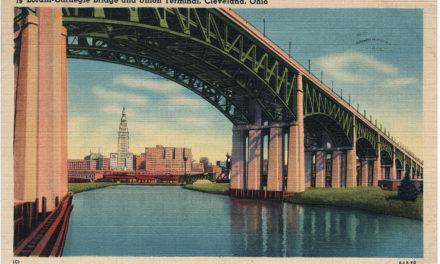Cleveland History
- February 26, 1933: The Cleveland Museum of Art hosted the opening of a significant exhibition, showcasing rare and valuable pieces that highlighted the city’s cultural depth and commitment to the arts.
- February 27, 1971: The Cleveland Cavaliers scored a historic win against the Los Angeles Lakers, marking a memorable moment in the team’s early years and setting the stage for its future successes in the NBA.
- February 28, 2002: Cleveland’s Public Auditorium was designated as a historic landmark, recognizing its architectural significance and role in the city’s public life since its opening in 1922.
- March 1, 1967: The Cuyahoga County Public Library system, serving the Greater Cleveland area, embarked on a significant expansion, opening several new branches to provide enhanced services and access to resources for residents.
- March 3, 1861: The establishment of the Cleveland Iron Mining Company marked a significant development in the region’s industrial history, contributing to Cleveland’s growth as a center for manufacturing and commerce in the 19th century.
World History
- February 26, 1993: The World Trade Center in New York City was bombed by terrorists, killing six people and injuring over a thousand. This attack marked the first major terrorist attack on U.S. soil and foreshadowed the events of September 11, 2001.
- February 27, 1933: The Reichstag building in Berlin, Germany, was set on fire, an event that the Nazi Party used as a pretext to claim a Communist plot and consolidate power, leading to the suspension of civil liberties and the arrest of political opponents.
- February 28, 1953: James Watson and Francis Crick discovered the double helix structure of DNA at the University of Cambridge, a breakthrough that would revolutionize biology and medicine.
- March 1, 1896: Henri Becquerel discovered radioactivity while experimenting with uranium and phosphorescent materials, laying the groundwork for future research in nuclear physics and chemistry.
- March 3, 1924: The Ottoman Caliphate was officially abolished by the Grand National Assembly of Turkey, led by Mustafa Kemal Atatürk, marking the end of the Ottoman Empire and the beginning of secular reforms in Turkey.






